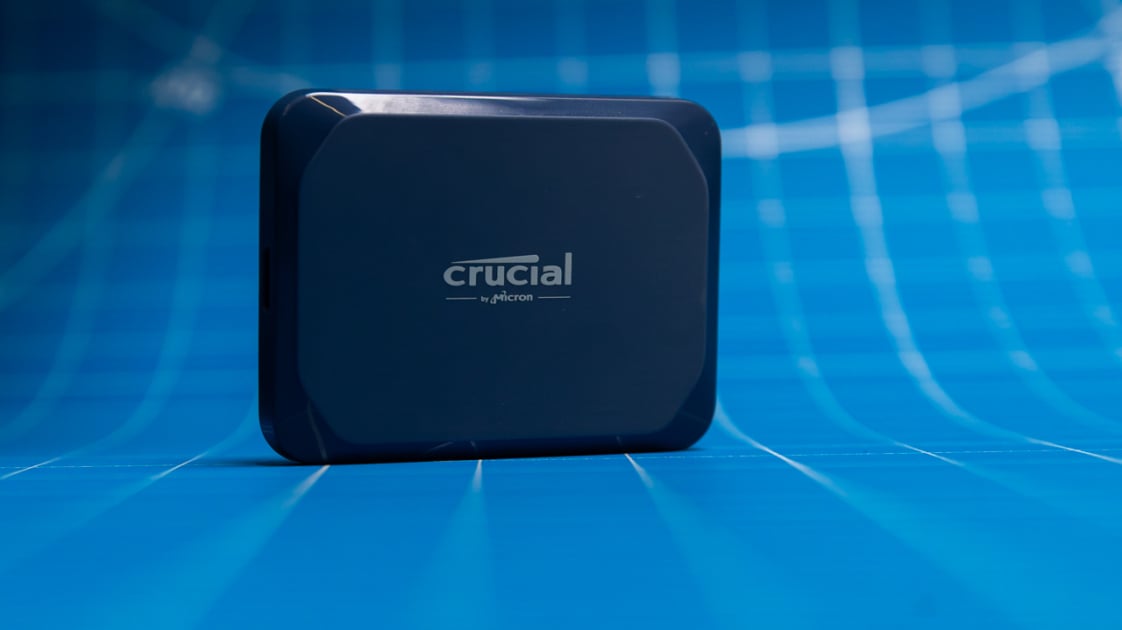Crucial X10 Review: …

We test USB 3.2 Gen 2×2 external SSDs using one of three PC Labs storage testbeds, a desktop PC built on an Asus Prime X299 Deluxe motherboard with an Intel Core i9-10980XE Extreme Edition CPU and an Nvidia GeForce graphics card. We use the motherboard’s native 10Gbps USB 3.2 Gen 2 port for testing most drives; for 20Gbps Gen 2×2 drives like the X10, we use a Gen 2×2 port added via an Orico PCI Express expansion card.
We subjected the X10 to our usual suite of external solid-state drive benchmarks, comprising Crystal DiskMark 6.0, the PCMark 10 data drive benchmark, the 3DMark Storage gaming test, Blackmagic’s Disk Speed Test, and our own folder transfer test. The drive comes preformatted in exFAT, which works out of the box with Macs, as well as Windows and Linux machines, Android devices, iPhones and iPads with a USB-C port, and Xbox and PlayStation consoles. So we ran the latter two tests first on an Apple MacBook Pro. Then we reformatted the drive in NTFS to run Crystal DiskMark, PCMark 10, and 3DMark on our Windows testbed.
The X10’s best benchmark results were on the two write-speed tests in our benchmark suite. It eked out a new high score among USB 3.2 Gen 2×2 SSDs in Blackmagic’s disk write throughput benchmark, with the Lexar Armor 700 Portable SSD just behind it, while decisively besting the field in Crystal DiskMark’s sequential write test. (It was brought back down to Earth in Blackmagic’s disk read test, where it turned in the lowest score, albeit just by a hair.) It even edged out the Crucial X10 Pro in both the PCMark 10 data drive general storage test and the 3DMark Storage gaming-centric benchmark.


